SPORT INTEGRITY MATTERS
ISSUE 14 | SEPTEMBER 2023
MICHELLE HEYMAN INTERVIEW THE MATILDAS: BUILDING THE LEGACY
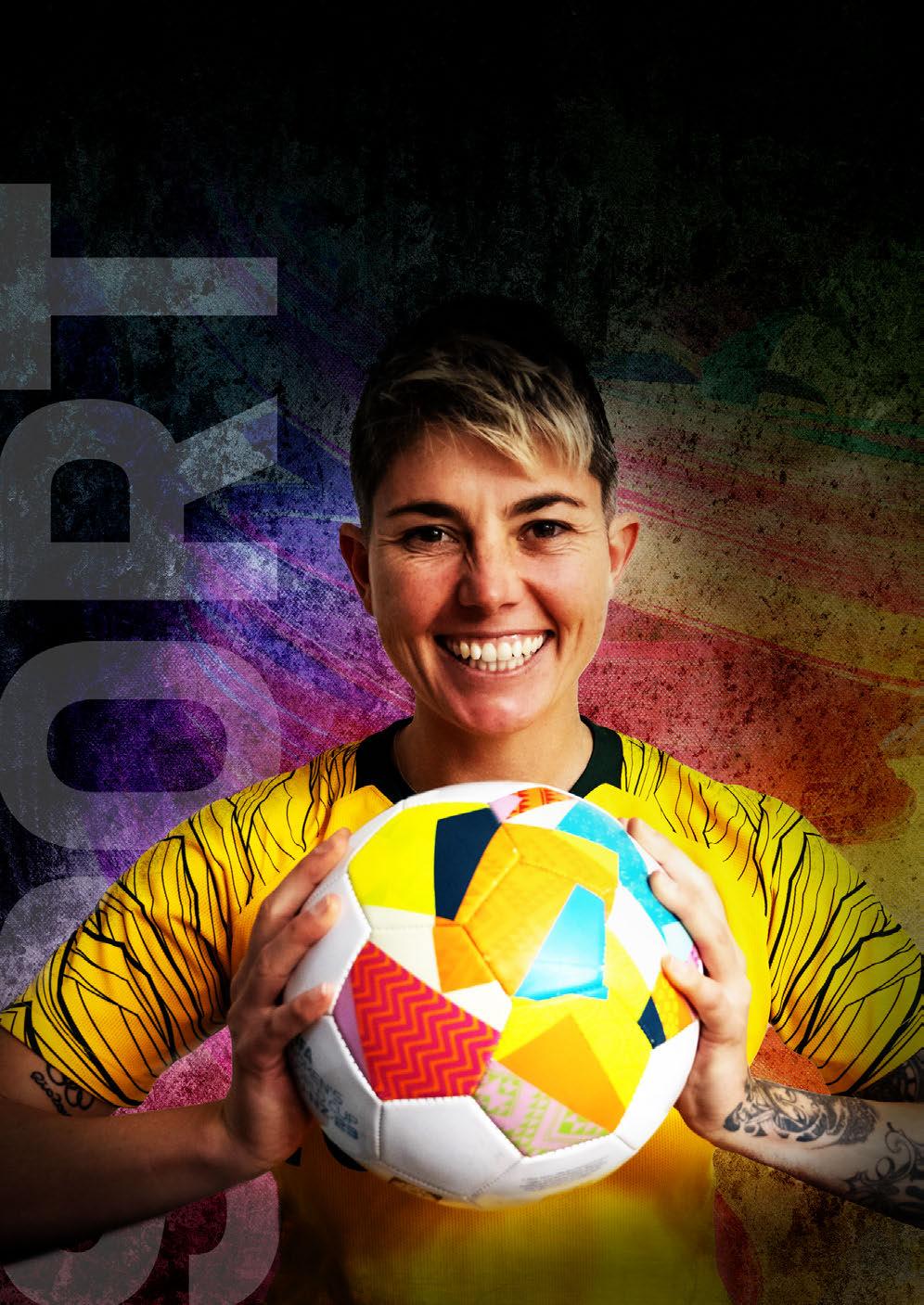
WHAT YOU SHOULD KNOW ABOUT EPO
MANAGING INTEGRITY IN SPORT COURSE
PLAY THE AUSSIE WAY CAMPAIGN
© Commonwealth of Australia as represented by Sport Integrity Australia 2023

PERMITTED USES
This publication is not for general distribution. You may download, display, print and reproduce the whole or part of this publication in unaltered form for your personal use or, if you are part of an organisation, for internal use within the organisation to perform your duties or functions of your role. You or the organisation must not use the reproduction for any commercial purpose and retain this copyright notice and all disclaimer notices as part of that reproduction. This publication is copyright. Apart from uses permitted by the Copyright Act 1968 and this copyright notice, all other rights (including all commercial rights) are expressly reserved.
DISCLAIMER
The content of this publication is provided for information purposes only. The contents do not constitute legal advice and should not be used as such. Formal legal advice should be sought on particular matters. While the information contained in this publication has been formulated with all due care, the Commonwealth or its partners do not accept any liability to any person for the information (or the use of such information) which is provided in this publication or incorporated into it by reference. This publication contains links to external websites that the Commonwealth has no direct control over. It is the responsibility of users to make their own decisions about the accuracy, currency, reliability and completeness of information contained on linked websites. Links to external websites do not necessarily constitute an endorsement or a recommendation of any material on those websites or any third party products or services offered by, from, or through those websites.
For further information please contact communications@sportintegrity.gov.au.
FEEDBACK
Do you have a story about an integrity issue that you want to share with the sports community through future issues of Sport Integrity Matters? Send an email to communications@sportintegrity.gov.au
All feedback is appreciated.
CONTENTS MESSAGE FROM THE ACTING CEO 3 MANAGING SPORT INTEGRITY TOGETHER! Managing Integrity in Sport course 4 ADRV PROCESS LOOKING THE OTHER WAY IS NOT AN OPTION Our Anti-Doping obligations 7 INVESTIGATION IN THE EVENT OF A POSITIVE TEST 10 SAMPLE TESTING PROCESS EXPLAINED 11 THE MATILDAS: BUILDING THE LEGACY 12 POWERING TOWARDS A SAFER SPORT AusCycling signs up to the Continuous Improvement Program 16 RIDING FOR THE DISABLED Bringing connectivity to participants, volunteers and horses 18 PLAY THE AUSSIE WAY Campaign 20 FIFA WOMEN’S WORLD CUP: THREAT ASSESSMENT AND APPROACH 22 GLOBAL CHALLENGES NEED GLOBAL PARTNERS 24 SAFEGUARDING OFFICERS AT TRINBAGO 2023 25 WHAT YOU SHOULD KNOW ABOUT EPO 26 USING EXERCISE SCIENCE AS MEDICINE 28 SNAPSHOT OF GLOBAL ISSUES 30
MESSAGE FROM THE ACTING CEO
The power of sport to instigate change should not be underestimated. Over the past two months we have seen a groundswell for equality in Australian sport, the likes of which we haven’t witnessed before in this country and potentially around the world.
The success of the Matildas in the FIFA Women’s World Cup and the Diamonds in the 2023 Netball World Cup has united Australia, effectively creating a point in time for all sport. This is a generational change that we are witnessing. The tide is turning and the culture of sport in Australia is front and centre of everyone’s mind.
Sportswomen and women involved in sport have been campaigning for equality for many years. The FIFA Women’s World Cup, in particular, has shone a light on issues which have gone unresolved through generations.
It is not just about greater financial investment in sport from government and the business community, it goes far deeper into the psyche of Australian sport.
The campaign for equality includes greater support for women to become elite coaches, with the percentage of women in paid full-time coaching roles still way behind that of their male
counterparts. It also calls for greater representation at Board levels and in senior administration roles − where decisions are made − and better pathways for girls across all sports.
It is something our sportswomen have pushed for for a very long time, declares former Matilda Michelle Heyman in our latest podcast (see edited transcript on Page 12).

Leadership and integrity in sport must have a diversity of voices.
The success of the Diamonds and the Matildas has triggered a once-ina-generation momentum for change. However, with this momentum comes risk, which is where Sport Integrity Australia will play a crucial role.
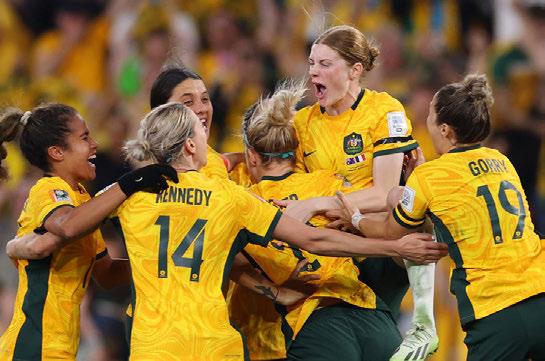
With participation rates expected to rise in the next couple of years, not just because of the Matildas’ and the Diamonds’ success but also because of the prospect of competing at the Brisbane 2032 Olympics and Paralympics, there needs to be an
enormous focus on education around integrity issues to keep them in sport long term.
Our agency is well aware of the potential upsurge in participation rates and has geared a number of our online and outreach programs across all levels of sport, not just the elite. These education programs encompass integrity-related issues such as ethical decision making, safeguarding and anti-doping.
Another area of concern is abuse, including sideline abuse at junior sport or abuse directed at match officials. The continued abuse of officials is of particular concern and is resulting in officials walking away in increasing numbers. However, without officials there will be no organised sport.
We need to educate and stop these poor behaviours now before more athletes and officials are turned off and walk away from sport altogether.
Play by the Rules has an excellent online educational resource focusing on sideline behaviour at sporting events.
It is important that we work together in the Australian sporting ecosystem to enhance equality and protect the current and future generation of young athletes. We all have a role to play.
Luke McCann Acting Chief Executive Officer

SPORT INTEGRITY MATTERS | ISSUE 14 3
MANAGING INTEGRITY IN SPORTtogether!
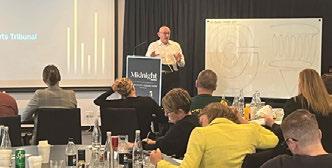

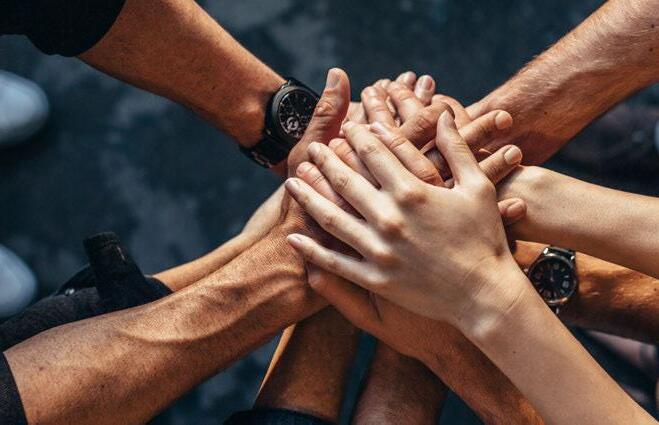


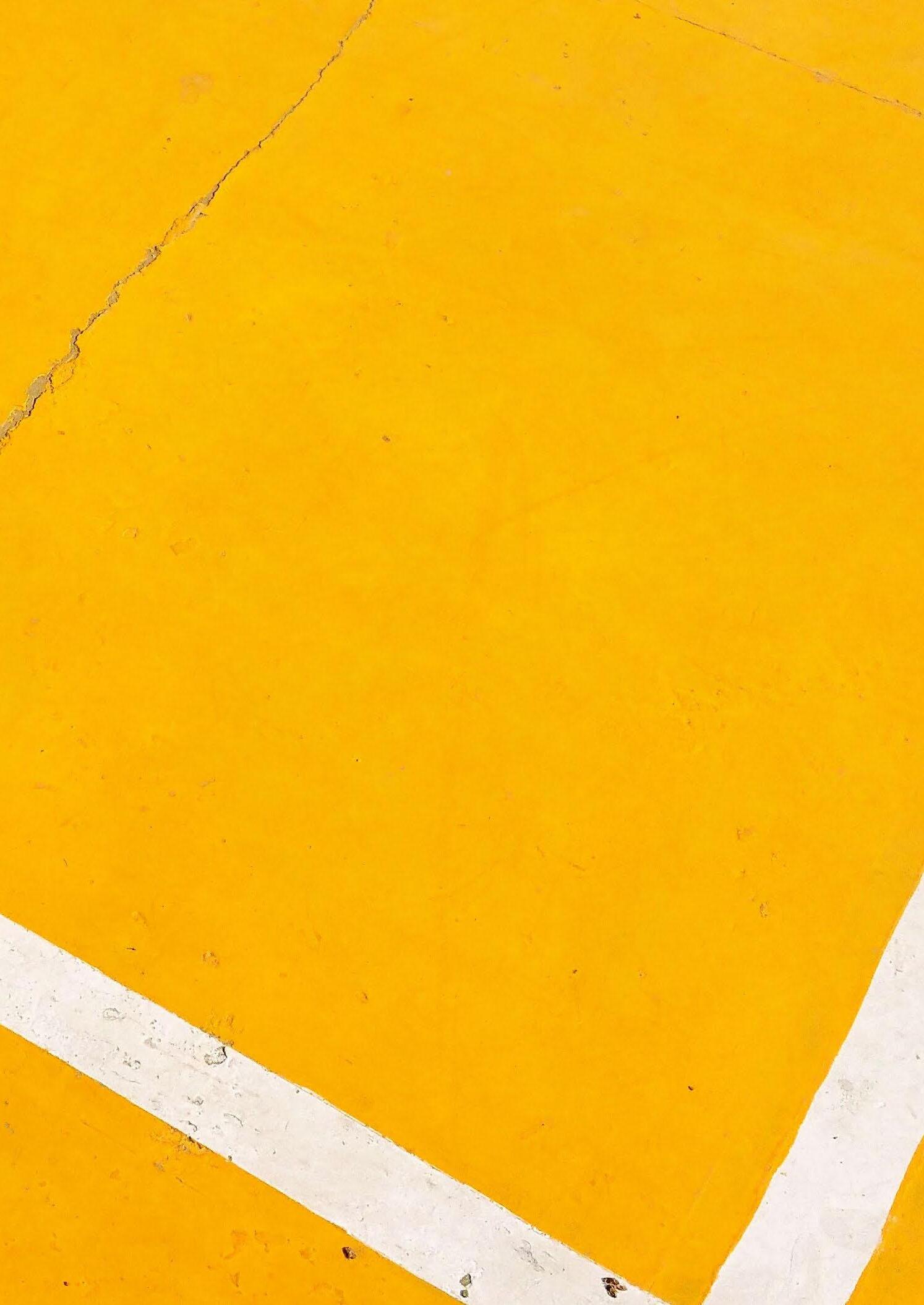
4 SPORT INTEGRITY MATTERS | ISSUE 14
Over the past 18 months, the three-day professional short course has been run five times, with almost 150 participants across approximately 70 sporting organisations leaving the course with credit towards a Graduate Certificate in Sport Integrity.
Covering aspects such as member protection, child safeguarding, improper use of drugs and medications, competition manipulation and sports wagering, anti-doping and complaints management, Sport Integrity Australia’s Director of Education Alexis Cooper said the course focused participants’ minds on the detail behind integrity policies, as well as helping to build a community of advocates passionate about protecting the safety of all members in sport.
“This course is really about helping participants understand the “what”, the “why” and the “how” behind integrity policies,” Ms Cooper said.
“We start with the “what”, so participants understand the types of problems and issues we are trying to address, before moving to the “why”, which is where we delve in to helping participants understand what is at stake and why it’s so important to strengthen all our integrity policies and protect people in sport.
“We then end on the “how” – giving participants hands-on opportunities to manage real-life complaint scenarios, including briefing CEOs and Boards on integrity issues, and giving time to consider how they can embed education in their sport.
“Throughout the course there’s a focus on understanding the importance of mental health support and the nexus between sport integrity and mental health, including the long-term impact of failing to create and maintain safe sporting environments for children.”
The most recent course held in Melbourne included experts sharing knowledge on matters that were at times confronting, while encouraging participants to actively participate in scenarios to fully understand the current threat environment.

Facilitated by VU’s Professor of International Sport Business Professor Hans Westerbeek and Sport Integrity Australia’s Assistant Director Steve Wyatt, the course included presentations from leaders in all major sport integrity topics as well as clinical and forensic psychologists, child safety specialists and the National Sports Tribunal.
The course has been attended by National Sporting Organisation integrity managers, state sporting organisation complaint managers, state Sport and Recreation departments and key sporting organisations like the Australian Olympic Committee and Commonwealth Games Australia.


“The three-day Sport Integrity Australia course was fantastic,” said Tahlia McGrath, Sport and Recreation Victoria’s Senior Project Officer Integrity. “It covered the key concerns facing the sport sector and provided really practical advice on how to manage issues in line with the NIF [National Integrity Framework] policies.”
Anna Longmore, the Integrity Manager of DanceSport, agreed. “The Managing Integrity in Sport professional short course is a must for any Integrity Manager,” she said. “Coming together to learn how to educate, facilitate and create a safe and all-inclusive environment for sport is a must, not just for today’s athletes, but future athletes. Together we all achieve more!”
A full evaluation of the course is now being undertaken, to inform Sport Integrity Australia’s broader program of education support across the sector.

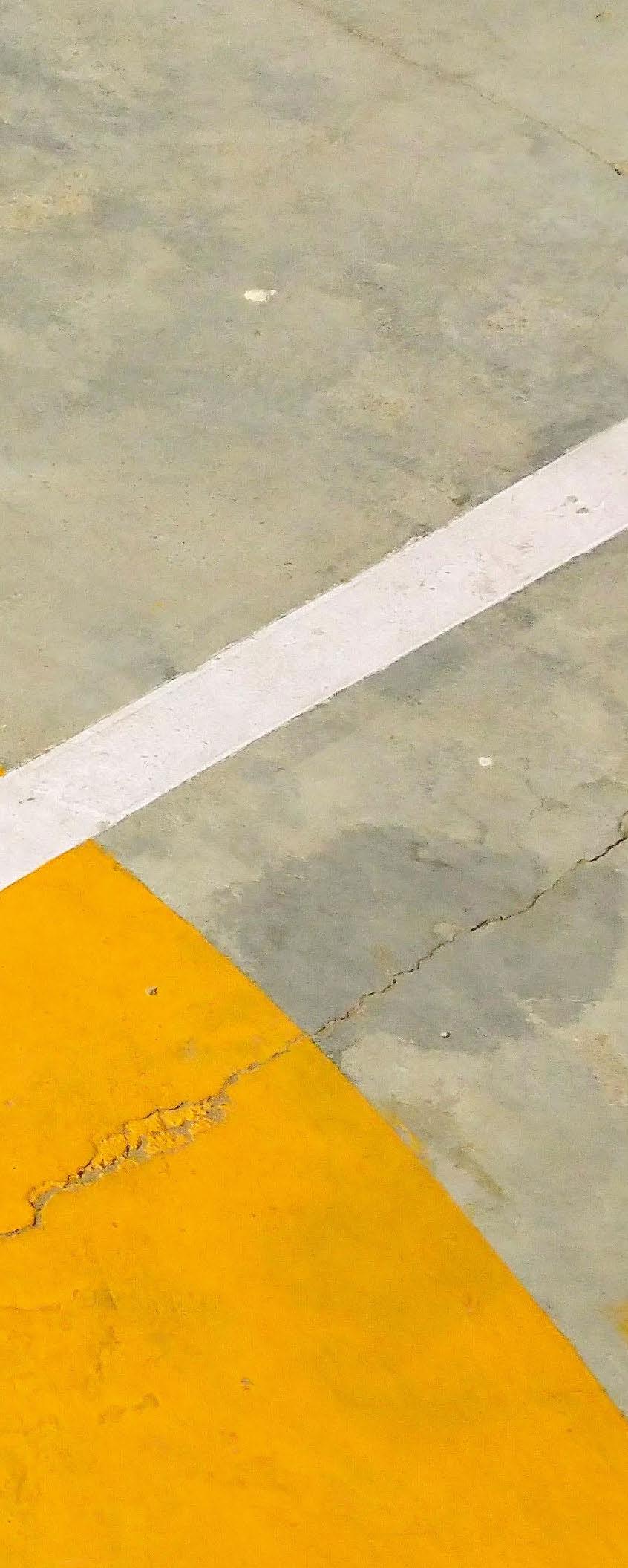
Opposite: Over the past 18 months, the three-day professional short course has been run five times, with almost 150 participants across approximately 70 sporting organisations.
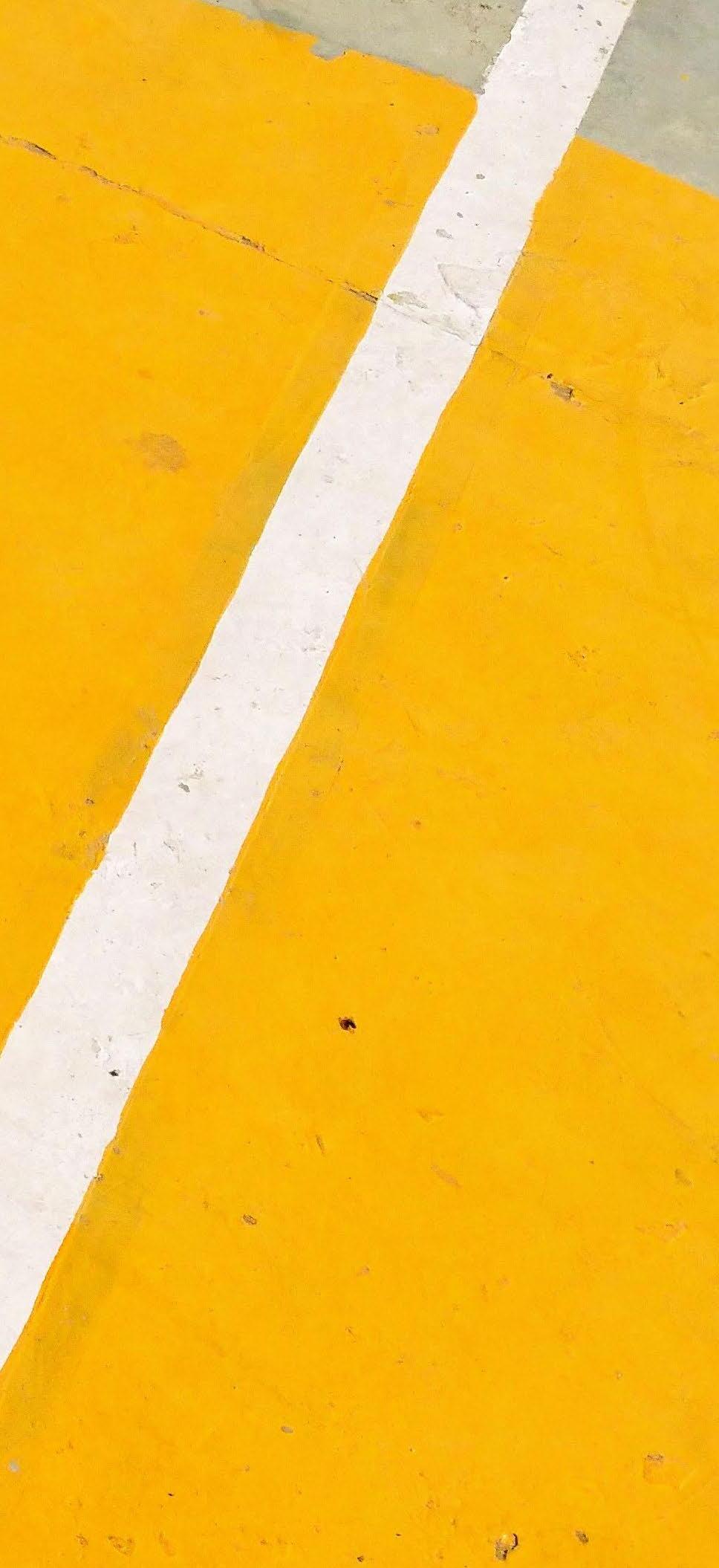
Coming together to learn how to educate, facilitate and create a safe and all-inclusive environment for sport is a must, not just for today’s athletes, but future athletes. Together we all achieve more!
5 SPORT INTEGRITY MATTERS | ISSUE 14
In March 2022 Sport Integrity Australia and Victoria University ran the first Managing Integrity in Sport course to raise awareness and understanding of integrity threats and to upskill participants in sport integrity management as it relates to the National Integrity Framework.
SAFETY IN SPORT
All levels, all sports
There is no excuse for abuse in Australian sport
Expanded hotline capabilities
Safety and Culture Advisor
Anonymously report your concern
Safeguarding in Sport Continuous Improvement Program (coming soon)
We’re here to listen and support
Need to talk? Share your story.
Talk to one of our trusted team about issues you have experienced in sport. The Safe Sport hotline includes an anonymous reporting capability which covers wider racial and cultural issues for people who feel they have been discriminated against in their sport.
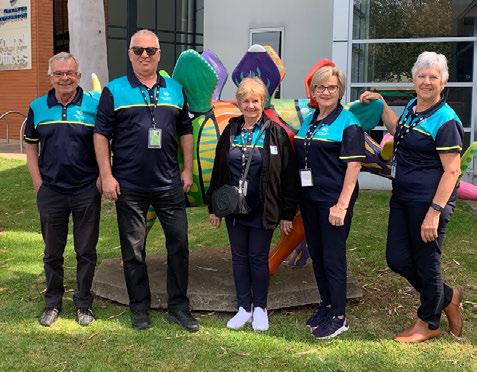
Call 1800 161 361

7am–7pm, 7 days a week, 365 days a year
KNOW WHO IS TESTING YOU
This is our uniform
While Sport Integrity Australia is the national anti-doping organisation in Australia, there are other private businesses that are authorised to do the same.
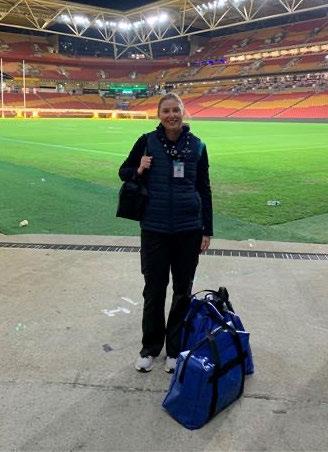
If it’s a Sport Integrity Australia test, our Doping Control Officers and Chaperones will be wearing this uniform.
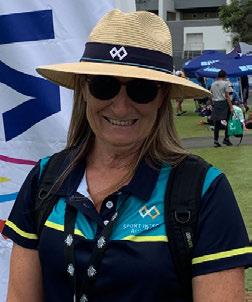
Know who is testing you.
Find out more about the anti-doping process: www.sportintegrity.gov.au/what-we-do/anti-doping
#ProtectingSportTogether
LOOKING THE OTHER WAY IS NOT AN OPTION
When a prohibited substance is detected in an athlete’s sample, Sport Integrity Australia is obligated to investigate. In this article we help to shed some light on the Anti-Doping Rule Violation process.

As Australia’s National Anti-Doping Organisation, Sport Integrity Australia is required to follow the rules set out in the World Anti-Doping Code (Code).
The Code is a ‘consensus document’ which is reviewed every seven years and every country, sport, athlete and academic can contribute to the rules.
There are more than 300 signatories to the Code, including National Anti-Doping Organisations, International Sporting Federations, National Olympic Committees and Major Event Organisations.
The Code is 181 pages and is underpinned by eight International Standards which are designed to create consistency across every part of the anti-doping process
– including things such as how testing missions are carried out, how Therapeutic Use Exemptions are decided and how investigations and legal matters are managed.
The Code’s Prohibited List details what substances and methods are prohibited in sport.
Any country that wants to send a team (or host) the Olympics, Paralympics and any major international events like the World Cup or World Championships has to abide by the rules in the Code and International Standards.
Failure by the agency to abide by the rules may result in Australia being unable to send an Australian team to the Olympics, Paralympics or any other International Event.
ADRV PROCESS ADRV PROCESS ADRV PROCESS ADRV PROCESS
If the laboratory detects a prohibited substance in an athlete’s sample, Sport Integrity Australia is obligated to investigate. We would expect – in fact, we demand – the same of any country around the world.
SPORT INTEGRITY MATTERS | ISSUE 14 7
THE ANALYSIS OF SAMPLES
Sport Integrity Australia does not conduct the analysis of athletes’ samples.
The Code requires the analysis of all athlete samples be done independently of Sport Integrity Australia. In most cases, in Australia this is carried out by the World Anti-Doping Agency (WADA) accredited laboratory in Sydney.
The agency’s role is to manage the process once the laboratory has carried out the analysis.

If the laboratory detects a prohibited substance in an athlete’s sample, Sport Integrity Australia is obligated to investigate. We would expect – in fact, we demand –the same of any country around the world.
If there is an issue with the analysis of the sample, then this must be investigated by WADA and the laboratories.
Sport Integrity Australia’s role is restricted to sample collection and results management in the event the laboratory detects a positive test.
There is no ambiguity in this process.
A TEST CAN COME BACK WITH THREE POSSIBLE OUTCOMES
NEGATIVE
No prohibited substance was detected in the sample. ATYPICAL
Neither positive nor negative (further investigation is required).
POSITIVE
A prohibited substance was detected in the sample.
Under the Code an Atypical result does not exonerate an athlete, it requires the National Anti-Doping Organisation to investigate why indications of a prohibited substance may be in the sample.
As a signatory to the Code, Sport Integrity Australia is required to vigorously pursue all potential anti-doping rule violations and our operational decisions must be independent from sport, government and external pressures.
DOPING INVESTIGATIONS
Each potential Anti-Doping Rule Violation (ADRV) brought before Sport Integrity Australia is unique in both its circumstances and the time it takes to reach a conclusion.
The agency runs investigations in accordance with the standards applied globally. The agency’s primary responsibility is to protect the integrity of sport and all athletes and we do this by following process, which may not always be popular, but necessary.
Our job is to gather information and to determine whether there is sufficient reliable evidence of a potential violation. We owe this to the athlete in question, the sport and all clean athletes.
Interviewing an athlete during an investigation may not occur until evidence is gathered. This affords the athlete an opportunity to address any evidence uncovered during the investigation.
If an ADRV is asserted against an athlete they have the opportunity to have an independent sports tribunal assess the evidence, including scientific evidence from accredited laboratories and to make a ruling based on that evidence. What is clear under the Code is that there is no requirement for the B Sample to test positive to satisfy the requirements to establish other possible violations (noting there are 11 ADRVs and only one relates to testing positive to a prohibited substance).
For example, the violation of ‘Use’ may be established based upon reliable analytical data from the analysis of an A Sample (without confirmation from an analysis of a B Sample). There are precedents where ADRVs have been established by sports tribunals when a B Sample has not confirmed an A Sample. The A Sample results in those cases have been shown to be reliable.
Under the Code an Atypical result does not exonerate an athlete, it requires the National Anti-Doping Organisation to investigate why indications of a prohibited substance may be in the sample.
ADRV PROCESS ADRV PROCESS ADRV PROCESS ADRV PROCESS 8 SPORT INTEGRITY MATTERS | ISSUE 14
ADRV PROCESS ADRV PROCESS ADRV PROCESS ADRV PROCESS
ATHLETE PRIVACY
One of the core principles behind the results management process is maintaining the privacy of the athlete while they undergo the process. Such is the importance of this principle, law makers have embedded it within Sport Integrity Australia’s legislation with severe penalties for any breach.
Once an athlete and their representatives have been informed of a potential ADRV, Sport Integrity Australia cannot ensure the matter remains confidential as the athlete, their family and their coaching staff are not bound by the same confidentiality rules.

In line with the Australian National Anti-Doping Policy (Article 14.3.1), Sport Integrity Australia can authorise a sport to disclose information in relation to a potential ADRV.
This authorisation includes the identity of an athlete, the prohibited substance, the nature of the potential violations and whether a provisional suspension has been imposed.
In determining whether to allow a sport to publicly disclose information regarding an ongoing matter (as per Article 14.3.1 of the Australian National Anti-Doping Policy 2021), factors that Sport Integrity Australia’s CEO will consider include: whether there is media speculation; operational advantage; the athlete's mental health; and whether the analysis of the B Sample has occurred.
All athletes competing in a WADA compliant sport in Australia are bound by an Anti-Doping Policy that includes consent to the public disclosure rule.
Prior to the authorised public disclosure occurring, out of fairness, Sport Integrity Australia will advise the athlete or their representative.
ATHLETE WELFARE
Did you know?
While Sport Integrity Australia is the National Anti-Doping Organisation in Australia, there are other private businesses that are authorised to do the same. Know who is testing you.
Despite suggestions, results from a lie detector test are not admissible as evidence in an anti-doping hearing. This is consistent with decisions around the world for the unreliability of such tests to determine truth.
The World Anti-Doping Code was first adopted in 2004 and was never designed to be a document that stood still. As anti-doping developed, so would the ideas that would form future rules, regulations and policies. Likewise, the agency will continue to evolve as science, technology and methodology advance and the threats to sport evolve.
We encourage athletes who wish to prove their innocence to work with us to uncover the truth. We have through our work revealed legitimate medical conditions affecting athletes, which they were able to seek treatment for. Where the use of a prohibited substance is medically required and meets the requirements of a Therapeutic Use Exemption, a breach of the rules is not recorded, rather the health of the athlete is our priority.
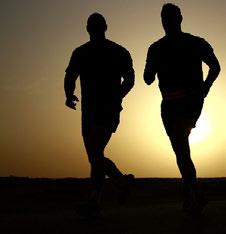
We have published the Anti-Doping Rule Violation Handbook: A Guide for Athletes that outlines all the information athletes need when faced with an ADRV.
You asked. We listened. During a Sport Integrity Australia testing mission, athletes will be given a card with a QR Code that answers questions about the testing process and provides a way for athletes to give anonymous feedback or raise an issue about their test.
Being notified of a possible doping violation will often initiate a range of emotions in an athlete.
ANTI-DOPING
RULE VIOLATION HANDBOOK: A GUIDE FOR ATHLETES
SPORT INTEGRITY MATTERS | ISSUE 14 9
... the athlete, their family and their coaching staff are not bound by the same confidentiality rules.
INVESTIGATION
IN THE EVENT OF A POSITIVE
TEST
If a positive result is confirmed during sample analysis, the lab submits a report into the World Anti-Doping Agency’s Anti-Doping Administration and Management System and Sport Integrity Australia is notified of the positive result.

Sport Integrity Australia matches the testing kit identification numbers on the report to the athlete who provided the sample. The athlete will then be notified of the positive result. The athlete is advised of their rights during the investigation process and options for wellbeing support.
In the event of a positive test, all athletes have the right to have their B sample analysed. Athletes may attend the B sample opening and analysis in person, or appoint a representative. Alternatively, athletes can waive their right to have their B sample analysed.
From here, Sport Integrity Australia will undertake its investigation process according to the investigation rules set by the Code. This process is designed to gather all the evidence and facts that led up to the positive result. This is especially important when an athlete can’t remember or show how the substance entered their system.
An investigation may involve interviewing witnesses, including the athlete. Depending on the substance or method involved, the athlete may be suspended while the investigation takes place – there are strict rules in the Code about this, and the rules are the same worldwide. It is up to the Anti-Doping Organisation conducting the investigation as to whether any provisional suspension is announced publicly or not.
Once the investigation is finalised, the length of sanction, if any, is determined and a report is prepared for WADA. After a sanction is received by the athlete, they can elect to contest the outcome in a hearing − this could be before the National Sports Tribunal, the Court of Arbitration for Sport or a sport’s disciplinary body.
WADA and the International Federation have 30 days to appeal any decision by Sport Integrity Australia, or a tribunal. Once this process is over, the outcome will be published on the Sport Integrity Australia website, according to the Code.
10 SPORT INTEGRITY MATTERS | ISSUE 14
An investigation may involve interviewing witnesses, including the athlete. Depending on the substance or method involved, the athlete may be suspended while the investigation takes place – there are strict rules in the Code about this, and the rules are the same worldwide.
ADRV PROCESS ADRV PROCESS ADRV PROCESS ADRV PROCESS
SAMPLE TESTING THE PROCESS EXPLAINED
Every sample is collected, analysed and investigated according to international rules set out in the World Anti-Doping Code. Let’s explore the steps a sample takes from collection to storage.
STEP 1 COLLECTION
The Sample Collection Officer will identify themselves and notify the athlete that they have been selected for testing. The officer could be from Sport Integrity Australia, or another sample collection agency used by the athlete's International Federation. In Australia there are multiple agencies who can collect samples. The Sample Collection Officer will observe the athlete as they provide a sample and will then manage the sample collection process including assisting with paperwork, instructing the athlete on how to divide the sample into A and B parts, and how to seal it in a special tamper-evident bottle.
TIP > The athlete should always TIP > Athletes have rights during the Sample check the Sample Collection Officer’s Collection process. These rights can be found ID so they know who is testing them. in the Athlete Guide to Sample Collection.
STEP 2 TRANSPORTATION
The sample is shipped to an independent World Anti-Doping Agency accredited lab. In Australia, that’s in Sydney. If the test is conducted overseas, it can go to one of 30 World Anti-Doping Agency accredited labs. It can’t just go to any lab. Only authorised couriers are used to ensure a chain of custody for the sample is maintained.
STEP 3 INSPECTION
When the sample arrives at the lab, it is inspected for any evidence of tampering or leaking that may affect the integrity of the sample. The sample analysis process is completely anonymous − there is no way for the lab to identify which athlete provided the sample, they can only see the identification numbers on the kit.
TIP > This is why the athlete should always double check the identification numbers on the kit match the ones on their paperwork.
STEP 4 ANALYSIS
A B
STEP 5 RESULTS
The lab securely stores the B sample, and prepares the A sample for analysis. The B sample is only opened in the event of a positive test.
A lab technician opens the A sample and removes a small amount, which is tested for prohibited substances or markers that indicate a prohibited substance or method has been used. For most samples, the lab will determine whether it is negative, positive, or Atypical.
After analysis is complete, the results are entered into a global database called World Anti-Doping Agency’s Anti-Doping Administration and Management System and reported to the organisation that ordered the test – either Sport Integrity Australia, the International Federation or a Major Event Organisation. If a sample is negative, the athlete will not be contacted.
An Atypical sample is neither positive nor negative and is extremely rare. If this happens, Sport Integrity Australia will be notified and will be required to investigate why the Atypical result has occurred. If a sample returns a positive result for a prohibited substance or method, the lab will certify the result before submitting a report to the database.
STEP 6 STORAGE
The sample may be stored for up to 10 years. A sample can be re-analysed at any time using new, state-of-the-art detection methods. The athlete can also consent to having the sample stored for anonymous scientific research to help keep sport clean and fair.
SPORT INTEGRITY MATTERS | ISSUE 14 11
the Matildas

BUILDING THE LEGACY 12 SPORT INTEGRITY MATTERS | ISSUE 14
Former Matilda Michelle Heyman is featured in the latest episode of our podcast On Side. Michelle played for Australia 61 times between 2010−2018, booting 20 goals before a series of injuries forced her to retire from international duties in 2019. The W-League all-time record goal-scorer talks about the Matildas’ inspiring run, the growth of female sport and what keeps driving her on the pitch. This is an edited extract.

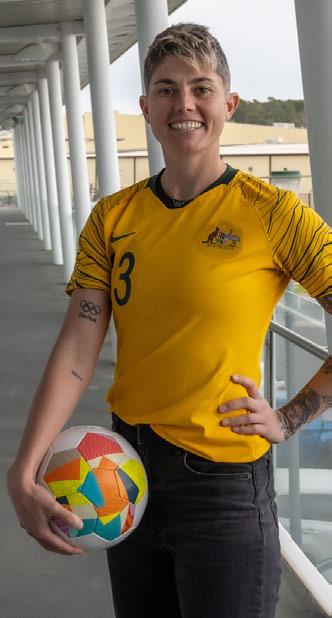
Michelle, it’s been extraordinary to see what the Matildas have been able to achieve. Record ratings. Good crowds and a genuine movement for change. It’s incredible.
MICHELLE: It’s been the most amazing month that I’ve ever been a part of. This is something that I think every single Matilda or every single female athlete has wanted for such a long time. To see something so special like our World Cup, to see those numbers, to see the amount of people in the stands on home soil is incredible. We’ve pushed for this. We’ve tried to sell our brand for a very long time … it’s hopefully going to change women’s sport within Australia.
Let’s have a look at a couple of stats. You played in the 2015 Women’s World Cup and made it through to the quarter-finals. How much did you earn for making it through to the quarter-finals as part of the Matildas?
MICHELLE: $750 was our big pay cheque. So, you know, within eight years, when you look at today and what the girls went home with [$246,000 each player for fourth place], definitely it’s improved. But again, when you look at that compared to the male football, we’re still a long way away.
Do you think that the current generation realise what your generation went through? For instance, 2015 World Cup, $750 for making it through to the quarter-final?
MICHELLE: You know, my best mate, Caitlin Munoz, who was in the Matildas 10 years before me, she never made a dollar. I saw her struggles. But she is grateful for me, she’s like, ‘well, at least you got paid and you got to get a little bit of a career out of it’. But that $750 remark, when I looked on social media, I’ve had some people be like, ‘that’s so sad’ and then some people are like, ‘well, that’s more than what athletics gets’, like everyone has to judge to something else. But it was more along the lines of $750 to what the men got that year in comparison. The Socceroos didn’t even make it out of the group stage and all of them walked away with $300,000 and here we are in quarter-finals with that amount of money. It just doesn’t make sense in my eyes, the amount of training that we do is the exact same as what the males do.
MICHELLE’S PROFILE
Former Matilda striker
Played 61 times for the Matildas between 2010−2018
A-League Women’s all-time record goal-scorer
Currently has 96 W-League goals
Awarded the W-League's Julie Dolan Medal for the 2020−21 season
Scored 12 goals in 18 games last season
Was named Canberra United’s 2022−23 player of the year
Currently plays for Canberra United (captain)
SPORT INTEGRITY MATTERS | ISSUE 14 13
Above: Recording the podcast with On Side host Tim Gavel. Opposite: Matildas’ mania – when Cortnee Vine’s penalty kick hit the back of the net against France, the whole of Australia roared as one. Image courtesy FIFA.
I hope that this generates more interest from women wanting to become coaches of women’s sporting teams. For instance, Nicole Begg is the only woman coaching a women’s team in the top tier competition in Canberra.
MICHELLE: And it’s pretty sad because there’s still no funding for coaches, even if you look at the A-leagues like I don’t think any of the coaches are getting paid more than $10,000−$20,000 for a head coach job. And if you look overseas, they’re on $300,000 to $500,000. At our league there’s just no support within coaching. Why would you wanna become a coach? There’s no career path for you, there’s a hobby.
Just having a look at your career when you started on the South Coast at about 11 years of age, did you have ambitions to be a Matilda back then?
MICHELLE: No, I didn’t even know that the Matildas existed. I literally found out about the Matildas maybe a month before I got called into the Matildas. I had no idea that there was an Australian team.
A month before you got in?
MICHELLE: I finished my W-league season and won a few awards and the head coach, Tom Samani at the time, asked me to come into a camp.
Given the awareness and the hype around the Matildas now, there’s going to be a whole lot of young women wanting to become a Matilda in the future. Hopefully there are facilities, there are coaches, there’s integrity frameworks to guide them through.
MICHELLE: 100% we need that. That’s a big problem that we don’t have right now, I think most of the A-League clubs are, you know, we still share a lot with the men’s teams

14 SPORT INTEGRITY MATTERS | ISSUE 14
... we have always had to have that second job, we’ve always had to be able to juggle as many things as possible, juggling our own personal social media and being able to handle criticism just comes with the game.
and, unlucky for us, Canberra doesn’t have a men’s team. We’re lucky we’re training out of the AIS, but at the same time it would be really cool to have our own football facilities within Canberra and to be able to go to our field and have like, all our stuff there and the team being able to just be comfortable in one spot. I think we still have a long way go and we have to continue to fight those little battles because if we don’t do it, then nothing’s ever going to change.
Is there much sexism, do you think, from male administrators, coaches, that still needs to be dealt with? We’ve obviously seen the fallout from the Spanish women’s team.
MICHELLE: Definitely, I’ve had these conversations even with our coaching staff within Canberra. It’s just having that knowledge. We even now have the Pride Cup and Pride in Sport come out and talk to us and the coaching staff on how to just be a human and to be able to talk and respect everybody because, you know, back in the day that wasn’t a thing, so coaches are learning.
I guess it shows a fair bit of courage though, to stand up and address that sort of thing because you are an older player, you’re able to do it, but I would imagine that’s not always the case with younger players.
MICHELLE: Yeah, definitely, it’s a different generation. When I look at my players, the new one was born in 2006 and I was like, ‘cool, that’s when I finished school’. So, it’s like the age gap is getting even bigger now ‘cause I’m getting a lot older than what I should be and still playing. But, you know, it’s being that role model and trying to be a sounding board for my coaches and for my players. I’m kind of like the girl in the middle who just likes to listen to everyone’s conversation to make sure that everyone feels safe and comfortable.
Do you think sportswomen can cope with the sudden rise in fame and exposure, where suddenly people feel as though it’s OK to have a crack at them on social media if they miss a goal or they don’t save a goal?
MICHELLE: I think women are strong and have to be and have been for a very long time. They know how to present themselves on social media and we know not to read what people say to us because I used to cop it a lot, especially for being a gay athlete. People would tell me to read the Bible constantly … I just believe in women because we have always had to have that second job, we’ve always had to be able to juggle as many things as possible, juggling our own personal social media and being able to handle criticism just comes with the game. We get criticised from our coaches more than what we get criticised by the people in the stands.
How do you think male sports people have found the sudden rise of the Matildas? Everybody’s talking about Mary Fowler, Steph Catley, Hayley Rasso. They’re talking about Sam Kerr.

MICHELLE: I think it’s awesome. Seeing the Boomers with all their jerseys on and changing the time of their game just so they could watch the girls. That’s something special because I know that all the male counterparts have always wanted women to be in the limelight as well, they wanted us to fill stadiums. I think they’re all on board. They love it. There was film of the Panthers and everyone just cheering,
screaming about the penalty shootout − that’s what Australians are about, we love supporting each other. Great for young women, too, because there used to be that saying, ‘you can’t be what you can’t see’. Suddenly they’re able to see it. Young women are wanting to be footballers, but right across the board, women feel empowered.
MICHELLE: It’s awesome. I love being able to turn on the TV now and you see the NRLW. If that was on when I was 18 I would have played that sport for sure because I grew up playing touch football as well, and I loved the NRL, that was my sport. To be able to see those girls going out there hitting really hard and, you know, loving what they’re doing, it inspires me.
You can watch the full interview on the Sport Integrity website (www.sportintegrity.gov.au/news/podcasts)
SPORT INTEGRITY MATTERS | ISSUE 14 15
Above: Former Matilda Michelle Heyman signs Sport Integrity Australia’s honour wall. Opposite: The Matildas’ run to the semi-finals has inspired the next generation of players. Image courtesy FIFA.
POWERING TOWARDS A SAFER SPORT

When sports sign up to the Safeguarding in Sport Continuous Improvement Program they're showing their members that they are taking the lead in member protection and child safety.
Having the policies signed off is one thing, putting them into action is the next important step. The Continuous Improvement Program provides a robust framework and resources to strengthen safeguarding capability and practices across the sports sector.
Swimming Australia, Disability Sports Australia, AusCycling, Softball Australia, Basketball Australia, Pony Club Australia and Triathlon Australia are early adopters of the program.
We talk to AusCycling's National Integrity and Complaints Manager, Anne Knight, about what the program offers her sport.

Congratulations on being one of the first sports to sign on to the Safeguarding in Sport Continuous Improvement Program. Why did AusCycling decide to sign up and why was it important for you to do it so quickly?

AusCycling is committed to ensuring there is continued effort to safeguard children and all members when participating in cycling. Being part of a collective industry-wide effort to further safeguard sport in Australia will not only assist AusCycling to build greater capability to create and maintain safe environments, but it also has the potential to create consistent best practice standards across all sports.
AusCycling looks forward to undergoing robust assessment of our current efforts to keeping children and members safe
in our sport and, more importantly, identifying areas that need greater focus. Going through this process in partnership with Sport Integrity Australia will also allow AusCycling to access expert advice, resources and support and enhance our approach towards the protection of children and members across all levels of our sport.
How has your sport handled safeguarding-related issues previously?
In July 2022, AusCycling adopted the National Integrity Framework which provided clear and consistent guidance for management and mitigation of safeguarding issues at all levels. To date, AusCycling has taken a proactive approach to identify risks and educate our clubs, athletes, coaches and volunteers of our collective commitment and obligation to child safeguarding and member protection. As Australian society is continually changing, AusCycling appreciates that continued improvement and focus on safety always needs to be prioritised.
What are your biggest challenges in the safeguarding space?
Creating a consistent understanding of the importance of child safeguarding across all levels of the sport and ensuring we achieve best practice is a major focus for AusCycling at the moment. Like many sports with a large volunteer base, particularly at the grassroots level, clubs' capacity to meet continuing and increasing administrative and compliance requirements is a challenge. AusCycling is working through ways in how these requirements can be eased to support clubs. We anticipate that this program will support AusCycling to addressing this challenge.
16 SPORT INTEGRITY MATTERS | ISSUE 14
Anne Knight
What are you hoping will come from the Continuous Improvement Program?
AusCycling hopes that this program will provide a process to clearly understand our strengths and areas that require greater focus. As other sports who sign up to the program will undergo a similar process, AusCycling hopes there is opportunity to align efforts where similar improvement is required.
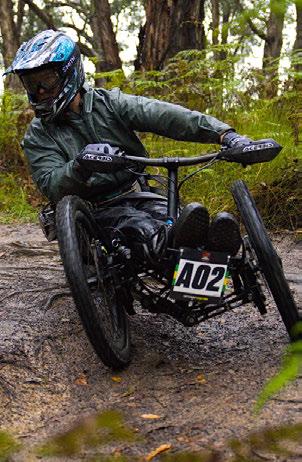
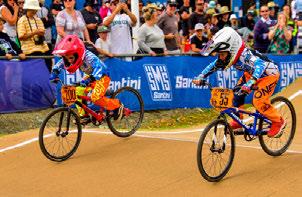

We also look forward to the impact this work could have on Australian sport more broadly. Working collaboratively with other sports, Sport Integrity Australia and other industries to make continuous improvements in this space is a great initiative toward ensuring sport in Australia is a safe place for everyone.
What would you say to other sports who might be hesitating to sign on?
As part of National and State Child Safe standards, there are obligations that sports must meet to ensure the environments we provide are safe for all. At times this can seem overwhelming and difficult to know where to start or what to prioritise. This program will assist sports in understanding and assessing the risks, identifying and prioritising where to focus, and to continuously review to ensure safe environments for children and members.
AusCycling is committed to promoting and protecting the safety and wellbeing of children and members who are involved in our sport. This is an ongoing commitment and as an organisation we are collectively driven to deliver on it. We look forward to working collaboratively with Sport Integrity Australia to continuously improve our efforts to provide a safe sporting experience.

Safeguarding in Sport Continuous Improvement Program
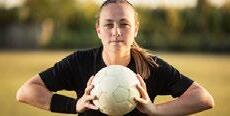
Encouraging all National Sporting Organisations and National Sporting Organisations for People with Disability to sign up and embed Safeguarding and Member Protection policies and principles into practice –at all levels.
The program will:
Build sports’ capacity and capability. Lead a cultural shift. Enhance organisational capability to respond to child abuse threats. Bolster community confidence. Enable sports to demonstrate their commitment to safeguarding and protection.
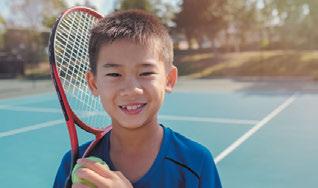
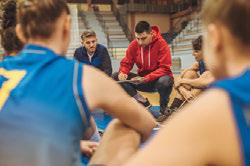 Images courtesy AusCycling
Images courtesy AusCycling
SPORT INTEGRITY MATTERS | ISSUE 14 17
Going through this process in partnership with Sport Integrity Australia will also allow AusCycling to access expert advice, resources and support and enhance our approach towards the protection of children and members across all levels of our sport.
WWW.SPORTINTEGRITY.GOV. AU #ProtectingSportTogether
RIDING FOR THE DISABLEDBringing
Connectivity TO PARTICIPANTS, VOLUNTEERS AND HORSES
Riding for the Disabled Association (RDA) is one of Australia’s 81 sporting bodies who has signed on to the National Integrity Framework. Operating since the early 1970s, their centres, like many sporting clubs across the country, are great places for people to gather and be connected to community.
Their focus is delivering equestrian sports to bring connectivity between participants, volunteers and horses.

“There is an incredible bond between the horse and our riders and that special bond brings amazing outcomes,” says Justin Dent, Executive Officer, Riding for the Disabled.
“First words, previously unseen reactions or a sudden willingness to try something that was determined ‘impossible’ are all reactions and outcomes that we’ve routinely seen across Australia in our programs, for many people, across many years.”
Justin explains that for many of their riders the horse can take them to places they couldn’t go themselves in a way that encourages learning, engagement and the courage to take on new challenges.
“RDA centres bring outcomes to our riders that sometimes they or their family didn’t think were possible,” he says. “The fact those outcomes are possible in RDA means they could be possible in other parts of life too.”
We chat to Justin about his role, why RDA signed up to the National Integrity Framework and how a national approach such as this is helping them to keep their sport safe.
18 SPORT INTEGRITY MATTERS | ISSUE 14
Tell us a little bit about yourself, your role at Riding for the Disabled and what has attracted you to that sport.
I took on the role of Executive Officer in January 2023, having previously spent seven years in the same role at our South Australian state office. Prior to RDA, I spent almost 12 years in Australian Rules Football, in both development and administrative roles across elite and community football. I spent some time working in the disability sector, managing partnerships and relationships at a large provider, and gained a far deeper understanding of how community partnerships and individuals can work with, and can significantly benefit the lives of, people living with disability.
Having a good understanding of the impact that sporting clubs have in establishing connections and leading community and an understanding of the benefits of a more inclusive society, I was drawn to RDA as I saw this as the blending of two halves of my previous experience. My passion is for RDA to be welcoming and driven to provide as much service to our communities as our resources can handle.
Why did Riding for the Disabled sign on to the National Integrity Framework?
RDA is a firm believer in the principles of the National Integrity Framework. Our organisation has always been driven to be inclusive and safe and we believe that all sporting communities should be the same. There are parts of the Framework that are not as relevant to us on a day-to-day basis, as our sport is generally not delivered in a competitive environment and our focus is not necessarily on elite pathways, however we believe in the principles of the Framework that govern sport and we wish to advocate for best practice in our sport and all sports.
How had your sport handled integrity related issues previously?
Integrity matters in RDA have in part been handled centrally. We’ve had a National Members Protection Policy that has covered some of these matters in a structured and coordinated way, but not to the depth that the National Integrity Framework provides. Safeguarding matters have always been a high priority for us, but these have generally been driven and resourced at state member level. The National Integrity Framework allows us to streamline and nationalise our processes.
Do you have a dedicated integrity employee/resource?
We don’t have a dedicated resource but as a member of the Australian Sporting Alliance for People with Disability (ASAPD) we have recently been funded for a joint resource. This is an exciting step forward for us and all members of ASAPD and we look forward to making good steps forward in this space in the next 12 months.
What is your current integrity focus at Riding for the Disabled?
Our major integrity focus is, and will continue to be, safeguarding, both for children and all vulnerable people that we support and engage in our communities.
For more information about the National Integrity Framework go to the Sport Integrity Australia website. www.sportintegrity.gov.au/what-we-do/national-integrity-framework
ANGEL’S JOURNEY
In Justin’s role he is lucky to meet some truly amazing and inspirational people from across Australia. He recently met Angel and his family who are about to embark on 3,500km journey down the east coast of Australia to raise awareness and funds for RDA.
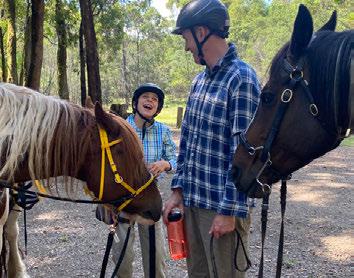
Supported by his parents, Angel and his horse Pippin will be riding the National Track to motivate other young people to get out and do the things that they love to do and inspire people with disability to do something adventurous and challenging.

“Angel was diagnosed with Cerebral Palsy at birth and given very little chance of living, let alone given a chance to live a full and engaged life,” Justin says.
“His mum was determined and sought a range of therapy options when he was young, doing whatever she could to support Angel and upon the recommendation of a specialist she started him doing horse riding to help build up his core strength.
“She says it has been one of the most beneficial therapies he’s undertaken to help him physically but also its significantly helped his emotional wellbeing and given him exposure to experiences and challenges that he’s thrived on.
“Angel has chosen to partner with RDA so that through funds raised and awareness of our cause, we can then help lots of people with a disability across Australia to experience horse riding and learn to love it like he does.”
See Angel’s fundraising page with updates on his journey at www.rda.org.au.
SPORT INTEGRITY MATTERS | ISSUE 14 19
We believe in the principles of the Framework that govern sport and we wish to advocate for best practice in our sport and all sports.
PLAY THEAussie WaY
Our awareness campaign targets members of sports so they are aware of who Sport Integrity Australia is, what we do and where they can report poor behaviour in sport.
The role Sport Integrity Australia plays within the sporting landscape has never been more important, particularly with the Brisbane Olympics and Paralympics on the horizon.
Sport is synonymous with Australia and is part of our social fabric, however in recent times a hidden underbelly of abusive behaviours in sport has emerged.
As a result, Sport Integrity Australia has been forced to adapt and change and develop policies and frameworks to deal with safeguarding all involved in Australian sport, as many existing policies within sport were outdated and ineffective.
In 2021 Sport Integrity Australia introduced the National Integrity Framework and drew a line at behaviours that have no place in sport – meaning that for the first time Australia had consistent policies across all sport, so regardless of where you played sport, the rules were the same.
The agency also created a Safety in Sport division, which included a 1800 Safe Sport hotline where members of sport can anonymously report abuse in sport ranging from doping and corruption to sexual misconduct and racial and cultural issues.
This has set the foundations for sport in this country, but we need members of sport to know about it and where they can report poor behaviour.
‘Play The Aussie Way’ is a symbolic campaign hoping to drive cultural change. It aims to educate participants on what sport integrity is while at the same time raising awareness of the agency and its role in helping to keep sport fair and safe for all participants.
It consists of a series of videos featuring a range of athletes and a coach who, in their own words, talk about what ‘playing the Aussie way’ means to them.
According to the athletes featured in the campaign, ‘The Aussie Way’ is playing with integrity: to play fair, to respect your opponents, respect the referee, to play by the rules, to always try your best, to be inclusive.
For 15-year-old Harry, who plays lots of sports, it is “to play to the best of your abilities whilst also respecting the other team, coaches, opposition … I don’t think it’s all about winning, I think it’s about trying to have fun.”
They all agree − sport is worth protecting.
You can report issues around racism, child abuse, discrimination and doping activity in your local club to the Safe Sport Hotline on 1800 161 361 or go to www.sportintegrity.gov.au.
Sport is synonymous with Australia and is part of our social fabric, however in recent times a hidden underbelly of abusive behaviours in sport has emerged.
20 SPORT INTEGRITY MATTERS | ISSUE 14
PATRICK JOHNSON

Olympic sprinter, First Nations leader and Culture and Safety Advisor at Sport Integrity Australia.
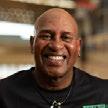


I was inspired to participate in the Play the Aussie Way campaign as I would like to see a sporting environment that is culturally capable, respectful and inclusive for all. For me, Playing the Aussie Way means that in Australian sporting culture I have a place to play, watch, support and volunteer and even participate regardless of my sporting abilities.


Playing the Aussie Way inspires me to be a part of a team, it’s culturally safe, it’s respectable, it supports me and empowers me to be healthier and be a role model for the next generations.
We must all lead with integrity and representation, by calling out inequality, bullying, racism and inspiring others to be a part of a sporting environment that is positive and culturally safe. This environment safeguards and protects everyone through living values that embodies respect, fair play, equality, diversity, inclusion and belonging now and for future generations.
Leading up to Brisbane 2032, we want to ensure that all Australians are part of the Olympic and Paralympic Games and part of the sporting landscape, a landscape that is culturally safe and inclusive. That’s the Aussie way!
A little bit about our other campaign participants
Images by Geoffrey Ellis
Tina Rahimi Commonwealth Games bronze medallist. First woman Muslim boxer to represent Australia at a Commonwealth Games.
Cal Bruton NBL legend and Hall of Fame inductee, championship winning player and coach.
Ellie Cole Champion swimmer, Australia’s most decorated female Paralympian, Sport Integrity Australia Athlete Advisory Group member.
Harry 15-year-old sport enthusiast who enjoys playing local football, AFL, OzTag to name a few.
SPORT INTEGRITY MATTERS | ISSUE 14 21
Kirra 13-year-old gymnast and aspiring Olympian.
FIFA WOMEN’S WORLD CUP THREAT ASSESSMENT AND APPROACH
The largest female sporting event in the world, the FIFA Women’s World Cup, landed on the shores of Australia and New Zealand during July and August. It was the first time the tournament was held in the Southern Hemisphere; the first time 32 nations participated and the first time it was co-hosted by two nations.
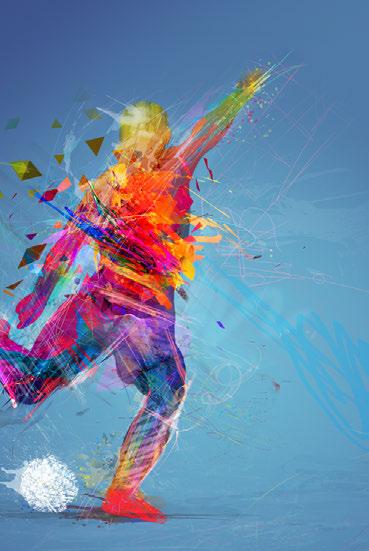
With a total compensation package of $US152 million on offer, three times more than the last tournament in France in 2019, FIFA put arrangements in place to ensure a safe and fair competition, of which Sport Integrity Australia was a key partner across several integrity threat areas.
SAFEGUARDING
Sport Integrity Australia was involved in pre-tournament Safeguarding strategy meetings with FIFA Women’s World Cup Australia and New Zealand 2023™, providing connections to various stakeholders and the provision of advice to support the tournament’s Safeguarding Operational Plan.
It’s a Penalty is an organisation that works to end abuse, human trafficking and exploitation, using sport’s unifying power to drive local and global educational campaigns during significant sporting events. Sport Integrity Australia supported the campaign during the tournament by providing information and resources to contextualise and embed the campaign for FWWC 2023 (itsapenalty.org/KeepKidsSafe).
The agency also participated in an expert panel at the Fan Festival to educate and inspire fans about Sustainability and its connection to sport via the four pillars of Environmental Sustainability, Safeguarding, Human Rights, Accessibility and Inclusion.
COMPETITION MANIPULATION
The World Cup Integrity Taskforce is a collaborative effort between FIFA and the most relevant stakeholders in the sport integrity field.
The taskforce was specifically set up by FIFA as an operational initiative to protect the FIFA Women’s World Cup from the manipulation of matches and integrity-related matters.
It is composed of the following members:
• FIFA
• INTERPOL
• Group of Copenhagen
• United Lotteries for Integrity in Sports (ULIS)
• International Betting Integrity Association (IBIA)
• Sportradar
• Federal Bureau of Investigation (FBI)
• United Nations Office on Drugs and Crime (UNODC)
• Sport Integrity Australia
• New Zealand Police.
Activities include risk assessments, prevention through education and awareness raising, monitoring betting markets during competition, assessing reports of suspicious and irregular betting, information and intelligence sharing and coordination and cooperation with relevant organisations and authorities. Risk assessments are important to highlight potential threats and ensure appropriate mitigation.
RISK ASSESSMENTS
Completed by Sportradar, IBIA and ULIS
• Assessments are based on betting data, intelligence and open-source information.

• ULIS risk rating for the tournament was Low-Medium.
• Sportradar risk rating was 3.5 out of 5 (in comparison FIFA Men’s World Cup 2022 which was given a risk rating of 3.12).
22 SPORT INTEGRITY MATTERS | ISSUE 14
• The higher risk rating is largely due to rapid growth in women’s football and lower wages.
• Some of the risk factors include:
betting turnover (expected to be the highest turnover generating female competition ever by a considerable margin)
– unique markets (spot fixing risk)
time zone favourable for Asian market (70% of turnover generated in the Asian markets)
– ‘Dead Rubber’ matches at the end of group stage.
As a member of the Group of Copenhagen and the Integrity Taskforce, Sport Integrity Australia established a law enforcement network in readiness to respond to any match-fixing and other criminal activity impacting on the integrity of the event, comprising five state police jurisdictions where matches were being played, New Zealand Police and the FBI. We also had contact with the AFP Specialist Protective Command Operation Tasman, established for the FIFA WWC.
Prior to the tournament, Sport Integrity Australia delivered an education session to Australian Federal Police officers who undertook the role of Team Security Liaison Officers. This session provided an update on potential integrity threats that could have been encountered during the tournament.
ANTI-DOPING
Sport Integrity Australia worked with FIFA across the tournament to assist in their anti-doping program.
COLLABORATION ACROSS GOVERNMENT AGENCIES
Major Sporting Events like the FIFA Women’s World Cup rely on support from various government agencies all with specific roles to play. The Office for Sport coordinated a sub-committee of government agencies, and with Sport Integrity
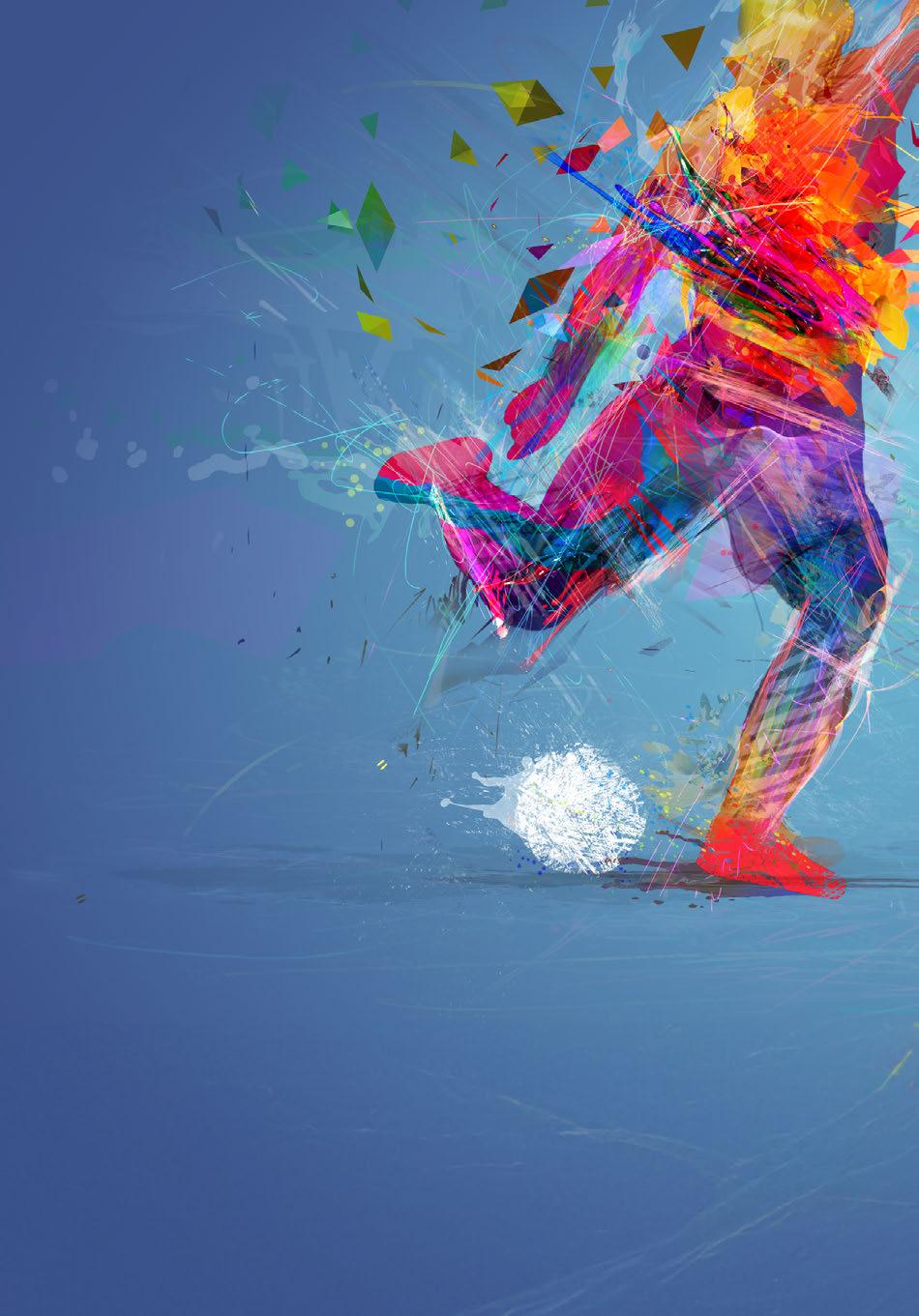
Australia’s involvement across the integrity space, the agency was invited to participate.
Coordination and information sharing was the name of the game for this group, to ensure all agencies had common information that could be actioned efficiently and effectively as required. A communications group also helped to ensure that key messages throughout the tournament were promoted throughout the widest network possible to reach the Australian public.
–
–
SPORT INTEGRITY MATTERS | ISSUE 14 23
GLOBAL CHALLENGES NEED GLOBAL PARTNERS

As the first country to establish a single entity responsible for managing all existing and emerging sport integrity-related issues under the one roof, there has been no shortage of interest from around the world on our progressive approach to combatting threats to sport.
Three years on, since opening our doors in July 2020, Sport Integrity Australia is in a unique position to be able share our successes and the challenges that have provided valuable learning opportunities and identified areas for growth and development across the agency.
CANADA / NETHERLANDS
We were privileged to have separate visits to the agency's office from the Dutch Minister for Sport, Conny Helder, and the Canadian Minister for Sport and Physical Activity, Carla Qualtrough.
Ms Helder discussed ways in which our agencies can improve responses to integrity issues in sport and Ms Qualtrough was particularly interested in learning more of Sport Integrity Australia’s operating model to help determine next steps for Canada's newly formed Office of the Sport Integrity Commissioner. Both countries were keen to discuss the integrity-related challenges our sporting systems share.
The agency has worked closely with the Netherlands Government as they explore sport integrity responses, including hosting a team from their government in February this year. We met with the Department of Canadian Heritage Sport Canada in May and have worked closely with them in relation to the international sharing of sport integrity information and international agreements.
UNITED KINGDOM
Sport Integrity Australia Executive team members also met with visiting UK Minister for Sport, Gambling and Civil Society and Minister for Equalities, Stuart Andrew,
British High Commissioner to Australia Vicki Treadell and CEO of Sport England Tim Hollingsworth.
The gatherings provided a great opportunity to discuss how the agency approaches sport integrity, including our response to challenges, our experiences and how partnerships can be enhanced to better address global threats to sport integrity.
Through the meetings with Canada, the Netherlands and the UK, it is clear that Australia’s system is highly regarded, but also that we have much we can learn from others.
“Sharing knowledge is not a one-way street,” David Sharpe said. “Sport integrity threats don’t stop at the border. It’s important to learn and share from each other and that was the spirit of the conversations we had with these delegations.
“We’re looking to learn from each other’s best practices and collaborate as we all move forward in our commitment to protect the integrity of sport together, in all areas, for a truly international approach.”
NEW ZEALAND
Outside of World Cup cooperation, we continue to grow our close relationship with New Zealand, and we have seen visits from both Drug Free Sport New Zealand (DFSNZ) and the New Zealand Integrity Commission.
During their visit in June, Sport Integrity Australia and DFSNZ executives had the opportunity to talk about their anti-doping programs and meet with various operational teams within the agency. The visit provided a great opportunity to discuss our international roles and how
24 SPORT INTEGRITY MATTERS | ISSUE 14
we can continue to work together on our various responsibilities across the Oceania region.
The New Zealand Integrity Commission were keen to hear about our National Integrity Framework, complaints management, competition manipulation, emerging threats and how we deliver education across the broader integrity spectrum. During their presentation to Sport Integrity Australia staff, it was interesting to learn that the New Zealand Integrity Commission will also be including recreation (Scouts/Guides, dance, etc.) in their remit.
SINGAPORE
Sport Singapore also treated us to a visit in July with a focus on hearing about Sport Integrity Australia’s complaints handling processes and our safeguarding program. In return, Sport Integrity Australia staff were able to hear about Sports Singapore’s Vision 2030 and their National Framework for Safeguarding in Sport.
SRI LANKA
At a government level, the agency represented the Minister for Sport at the 18th Asia/Oceania Region Intergovernmental Ministerial meeting on anti-doping in sport in Sri Lanka in June. The meeting provided a key opportunity for governments of the Pacific to meet prior to the United Nations Educational, Scientific and Cultural Organization International Convention against Doping in Sport, Conference of Parties in October and the Pacific Games in Honiara in November and share information on anti-doping programs and capability in the region.
Whilst in Sri Lanka, the agency delivered a capability day for the Sri Lanka Anti-Doping Agency under our Memorandum of Understanding. The day included meeting with Sri Lankan Government agencies, such as border agencies, health regulators and law enforcement. The aim was to highlight the importance of partnerships and information sharing in anti-doping and broader integrity issues to be able to better target facilitators and share intelligence.
SAFEGUARDING OFFICERS AT TRINBAGO 2023
Some of our Sport Integrity Australia team joined the Commonwealth Games Australia (CGA) headquarter staff to support the delivery of a safe and fair games on the islands of Trinidad and Tobago.
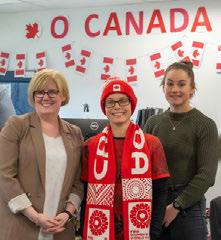
This was the second time CGA appointed Sport Integrity Australia staff into their HQ team for a Games, following on from the success and learnings of its inaugural implementation at Birmingham 2022.
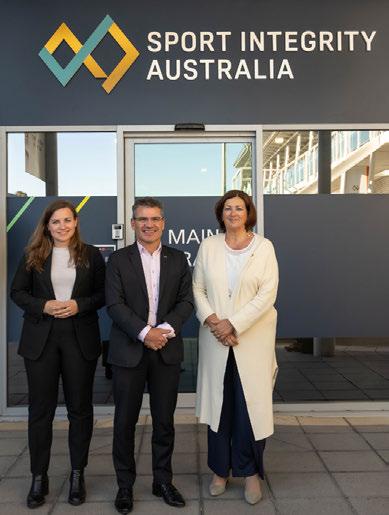
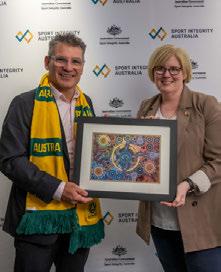
Australia's High Commissioner Sonya Koppe hosted a welcome function for athletes, their families and officials in Trinidad, which was followed by a fantastic opening ceremony in Trinidad with plenty of music, dancing and local characters to entertain the crowd.

Another highlight for our two reps, Katie Liddle and Emma Lappin (pictured below), included working with the amazing local volunteers who went above and beyond to assist and support the Australian athletes and officials. There were, however, frequent challenges around transportation to training/competition venues as some venues were still being built when pre-competition training and venue familiarisation were taking place.
Katie said it was amazing to see sporting organisations like CGA commit to safeguarding, especially in the high-performance environment.
“Awesome events like Trinbago 2023 provide athletes and officials the opportunity to learn more about the importance of ensuring the physical, emotional and psychological safety of all involved while allowing for a fun and successful sporting experience,” she said.
From left, CEO David Sharpe with Dutch Minister for Sport, Conny Helder (right) and Policy Officer Sport Benthe Tanghe (left), presenting the newly-appointed Canadian Minister for Sport and Physical Activity, Carla Qualtrough, with a print of a painting by Aboriginal artist Chern’ee Sutton; and the Minister with our Canadian fan club.
SPORT INTEGRITY MATTERS | ISSUE 14 25
WHAT YOU SHOULD KNOW ABOUT EPO
Synthetic erythropoietin is prohibited at all times by the World Anti-Doping Agency as it increases red blood cell production, thereby increasing oxygen to the muscles.

ABOUT THE SUBSTANCE
Erythropoietin (EPO) is a hormone naturally produced in the kidneys, with minor production in other organs. It is transported to bone marrow via blood, where it stimulates and boosts the development of red blood cells.
The body’s production of EPO is stimulated by low oxygen levels (hypoxia). When cells in the kidneys sense there is sufficient oxygen in the blood, they reduce production of EPO.
When EPO increases red blood cell production, oxygen supply to muscles is enhanced. This increases stamina – the ability to exert energy and remain active for a long period of time. Athletes who want to improve their endurance may train at high altitude locations or use altitude simulation devices to trick their body into thinking there's less oxygen and therefore start the process of making more blood.
RECOMBINANT EPO
Medical versions, which may be known as exogenous EPO, such as recombinant EPOs (rEPO), have been developed for use in clinical settings to treat medical conditions and can be misused to enhance performance in sport.
rEPO are biopharmaceutical drugs with the same effects as endogenous EPO.
It has legitimate medical uses, commonly used in a clinical setting for treating anaemia caused by chronic kidney disease or by chemotherapy, and is administered via injection either intravenously (IV) or subcutaneously (under the skin). Subcutaneous administration is usually in the thigh or abdomen/belly area, which can be easily self-administered.

The use of rEPO is often supplemented with iron and vitamin B (B12 and folic acid). Blood tests – including full blood count and iron studies − are usually conducted before, during and after treatment to monitor response to the drug, as well as track haemoglobin levels.
rEPO are the most chemically similar to endogenous EPO, however they present differently in drug testing processes.
MISUSE IN SPORT
The misuse of rEPO in sport is of most benefit to, and therefore represents the greatest threat in, endurance sports, such as long distance running and road cycling. Other high-risk sports include triathlon, marathon and long-distance swimming.
However, the use of rEPO doping is not unheard of in power-based disciplines, such as short-distance sprinting, and weightlifting.
26 SPORT INTEGRITY MATTERS | ISSUE 14
DANGERS OF SUBSTANCE
Use of rEPO can be extremely dangerous without proper medical oversight and can increase the risk of death. This is because use of rEPO results in increased production of red blood cells, making blood excessively thicker and prone to clotting. These risks are exacerbated by dehydration which often occurs during endurance exercise; further concentrating the blood and risking heart attack, stroke and blood clots.
There have been clusters of suspected EPO-related cyclist deaths in Europe during the late-1980s to early-90s, known as the ‘EPO-era’, and in 2003−04.
According to media reporting at the time, it was ‘common knowledge’ that riders were heard to get up to move around during the night so their arteries wouldn’t become clogged: “Those who forgot to wake up, or to drink enough water, or simply pushed their haematocrit so high that they created a logjam in their arteries, fell asleep after a hard day’s training and never woke up.”
ANTI-DOPING RESPONSE TO rEPO
rEPO has been banned in sport since the early 1990s and can be differentiated from endogenous EPO through laboratory analysis.
A test for rEPO was first presented at the 2000 Summer Olympic Games in Sydney. This was based on a complementary analysis using blood and urine matrix. With this test, a blood screening took place first, followed by a urine test to confirm the presence of rEPO.
Testing for rEPO can be conducted in either urine or blood samples and can independently indicate presence.
Laboratories that analyse World Anti-Doping Agency (WADA) anti-doping samples are required to meet extensive accreditation requirements, including regional as well as WADA accreditation, and undergo regular quality testing with major repercussions for failures in any capacity.
A laboratory may find a sample to be Negative, Atypical (suspicious), or an Adverse Analytical (positive).

For an Atypical Finding or Adverse Analytical Finding to be reported for rEPO the results must also be reviewed by a WADA-recognised expert, providing a second opinion.
When rEPO analysis results are inconclusive, it is reported as an Atypical Finding. This may be due to the presence of interferences in a sample, or the intensity of a potential synthetic EPO signal is too low to enable conclusive identification. An Atypical Finding result requires further investigation.
There is often a misconception that test results subjectively measure the amount of EPO in an athlete’s sample, above what should be naturally occurring. In reality, the results distinguish naturally occurring (endogenous) EPO from exogenous rEPO.
In addition, there is the Hematological Athlete Biological Passport which allows for the indirect detection of blood manipulation and/or synthetic EPO use, including rEPO, through longitudinal monitoring of blood-based biomarkers in individual athletes. Atypical Athlete Biological Passport profiles are used to direct testing and guide further analyses.
ANTI-DOPING PENALTIES
Athletes found to have used rEPO can be banned from all sport for up to four years.
A doctor/pharmacist who is found to be complicit in athlete doping can also be penalised under the World Anti-Doping Code, in the case where it can be established that the individual is subject to the anti-doping rules.
HOW DOES EPO TESTING WORK?
In anti-doping, EPO tests are able to differentiate between naturally made EPO, and synthetic versions of EPO. The test is looking to see if there is any synthetic EPO.
HOW IS EPO TESTING DIFFERENT TO OTHER TESTS?
For an EPO test to be confirmed positive, the sample is first analysed by a WADA Accredited Laboratory. The results are reviewed by an independent EPO expert recognised by WADA, and their opinion is reported by the lab.
There are only eight EPO experts in the world who can make a decision about whether a sample is positive, and none are based in Australia. This is because EPO results require very specific interpretation and expertise.
Synthetic EPO is the only prohibited substance with this subjective element in its analysis process.
SPORT INTEGRITY MATTERS | ISSUE 14 27
USING EXERCISE SCIENCE AS MEDICINE
Coming from a family of scientists, our Medical Advisor Dr Laura Lallenec always knew her future would be in science.
Her father is a chemical engineer, her grandfather was an inventor and her great, great, great, great, great, great, great uncle was a doctor who invented the stethoscope.
Not surprisingly, Sport Integrity Australia's Medical Advisor Laura Lallenec’s love of science was fostered from a young age with school holidays filled with lessons on geology and physics and visits to her father's work sites.
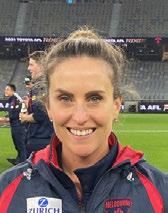
"I grew up loving science," she says. "I always knew I would pursue a career in science."

She contemplated veterinary science, then environmental science before eventually landing on medicine, completing a Bachelor of Science with Honours in Public Health. She then worked at ACT Health as a policy officer before deciding to study medicine. She later completed her specialty training in Sports Medicine.
"I decided I wanted to be in an area of medicine where people are proactive about their health," she says. "I've always loved sport and I've come from a family of people who are active. I played a lot of netball in my youth, including state league and Nationals.
"With my sporting background, I liked the idea of trying to find an area of medicine that uses exercise as medicine rather than just medication. After some investigation, I discovered sports medicine as a career path."
Laura Lallenec
28 SPORT INTEGRITY MATTERS | ISSUE 14
In sports medicine, she says patients want to get better so they can be more active and return to their sport whether that is an elite athlete or as an everyday recreational athlete or active individual.
Dr Lallenec joined the agency in January 2022 to provide medical guidance on sport integrity matters such as the use of prohibited substances and methods in sports, safeguarding of children in the sporting environment, as well as for investigations and intelligence matters.

She says the role aligns “perfectly” with her sports medicine background and her passion for health administration and governance.
"I have always felt strongly about promoting fairness and equality in sport, ensuring a safe place for everyone participating," she says. "I felt that this role was a great opportunity to educate athletes and support personnel working in the field about sport integrity matters and making sure it's a fair playing field for everyone involved."
To that end, Dr Lallenec is currently developing Sport Integrity Australia’s Sports Pharmacy education program as she "feels pharmacists can play a really important role in keeping our athletes safe from potential doping events". She says she would like to continue to develop her skills in anti-doping medicine.
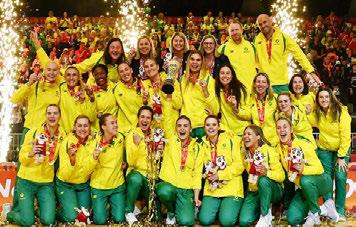
"I have recently had the opportunity to work within the Commonwealth Games Federation as a medical consultant and use my anti-doping experience from Sport Integrity Australia. I also hope to continue to work as a Sport and Exercise Medicine Physician in elite sport as well as private practice. A dream of mine is to one day be part of the medical team helping athletes at the Olympics and, hopefully as the Diamonds doctor, to one day see netball become an Olympic sport!"
Not surprisingly, her career highlight so far is the 2021 AFL Grand Final which Melbourne won in Perth.
"By then I'd been at the club for five years and worked my way up the ranks from the VFL to AFLW and then to the men's program," she says. "You really invest in the highs and lows of these athletes' careers. It was so nice to see them have success after all these years of working hard through tough times and for it all to come together, and for them to achieve the ultimate success in their career winning an AFL Grand Final."
The victory was even more poignant given the lockdown restrictions the team faced due to COVID, she says.
"We'd been in a final’s hub in Perth due to COVID and had been in Perth living together for five weeks. The players and staff lived day in, day out together, ate all our meals together and after five weeks away from family and friends, to end in such a highlight was really a once-in-a-lifetime experience."
As to the future, Dr Lallenec says she also hopes to become a leader in anti-doping medicine within the sports medicine community like her mentor, Dr Susan White.
"[Like Dr White] I'm very keen to successfully promote the importance of integrity in sport as well as anti-doping principles to both support personnel, elite athletes and pathway athletes."
DON’T SKIP MEDS – GET A T.U.E. INSTEAD!
Athletes should continue to take the medication as prescribed by their doctor and apply for a Therapeutic Use Exemption (TUE) when required.
They should not skip taking their medication to avoid the TUE process nor should they stop taking their medication to compete. Health is too important.
Athletes should call the Australian Sports Drug Medical Advisory Committee (ASDMAC) or go to the TUE section of the Sport Integrity Australia website to determine if they need an in-advance or retroactive TUE.
LAURA'S TOP TIPS FOR ATHLETES
Never assume something is safe to take even when the brand promotes that it is. Remember you have strict liability to what you put in your body as an athlete!
Supplements do not always list all the ingredients on their label. Always check the Sport Integrity app before taking any medications or supplements and to check whether you require a Therapeutic Use Exemption to take a particular medication.
Do your research around the medication or supplement you want to take and utilise experts such as Sports Dietitians and Sport Medicine Doctors to discuss if you need to take the substance and whether there is a doping risk associated with taking it.
Reach out to Sport Integrity Australia if you are still unsure if a substance is safe to take. Email substance.enquiries@ sportintegrity.gov.au
Dr Lallenec (far right, middle row) with the victorious Australian Diamonds World Cup team last month.
SPORT INTEGRITY MATTERS | ISSUE 14 29
SNAPSHOT OF GLOBAL ISSUES
ANTI-DOPING SAFEGUARDING MATCH-FIXING/GAMBLING
ANTI-DOPING
CYCLING
FRANCE 1
French rider Alex Baudin was disqualified from the Giro d'Italia after testing positive for a prohibited painkiller after the 17th stage. The 22-year-old AG2R rider’s sample contained Tramadol.
POWER LIFTING
NEW ZEALAND 2
Hinewai Hausman has been banned for a further seven years from all sport, after failing another anti-doping test. Hausman was serving a four-year ban for testing positive for Clenbuterol in 2019. She was tested again before her ban had expired in April, which returned a positive result for four anabolic steroids.
TENNIS
SWEDEN 3

Swedish player Mikael Ymer has been suspended for 18 months after missing three out-of-competition drug tests in a 12-month period. He has since announced his retirement from the sport.
CYCLING
UNITED KINGDOM 4
The former chief doctor of Team Sky and British Cycling, Richard Freeman, was banned for four years for possession of a banned substance and twice lying to UK Anti-Doping investigators. Freeman was struck off the medical register in 2021 after being found guilty of ordering 30 sachets of a banned testosterone.
CYCLING
BELGIUM 5
Belgian cyclo-cross specialist Toon Aerts was banned for two years after testing positive for the testosterone-boosting drug letrozole. He claimed the positive test was from a contaminated food supplement.
CYCLING
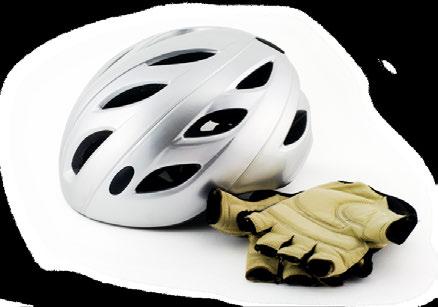
GERMANY 6
German cyclist Michel Hessmann was provisionally suspended after an out-of-competition test detected the presence of diuretics. His team, Jumbo-Visma, said Hessmann tested positive for “a diuretic that was contained in a medication” and said they would await the doping investigation.
30 SPORT INTEGRITY MATTERS | ISSUE 14 1 3 4 7 8 12 14 17 11 21 18 22 13 15 5 19 9 6 10 20 16 2
ATHLETICS NIGERIA 7
A Disciplinary Tribunal has cleared Tobi Amusan, Nigeria’s 100m hurdles world record holder, although the Athletics Integrity Unit said it was “disappointed” by the decision. Amusan was charged with missing three doping tests within a 12-month period. The reasoning for the decision is yet to be published.
ATHLETICS UNITED STATES 8
Two-time Olympian Gwendolyn Berry has been suspended for 16 months after testing positive for a topical medication containing the diuretic and masking agent, spironolactone. Berry had a prescription, however hadn’t obtained a Therapeutic Use Exemption for the medication.
MATCH-FIXING/GAMBLING
TENNIS AUSTRALIA 9
Tennis coach and former top 10 player Mark Philippoussis has been fined $10,000 for voicing an ad for a betting company and breaching tennis’ betting sponsorship rules. Philippoussis was also given a suspended four month ban from the game, which comes into play if there are any further transgressions.
TENNIS FRANCE 10
Former world No. 255 Alexis Musialek has been banned for life after being found guilty of fixing nine matches between 2016 and 2018 and for withholding evidence, the International Tennis Integrity Agency announced. Musialek also received a $50,000 fine.
SNOOKER CHINA 11
Two professional Chinese players have been banned for life and eight others suspended after being found guilty of match-fixing and other charges. Liang Wenbo and Li Hang were found to be the primary instigators for fixing multiple matches between July and September last year.
TENNIS ROMANIA 12
Romanian Petru-Alexandru Luncanu, 34, was suspended for five years and fined $40,000 for match-fixing activity in 2017 and 2021, as well as an additional charge of failing to co-operate fully with the International Tennis Integrity Agency investigation.
FOOTBALL CAMEROON 13
Former Barcelona player Samuel Eto'o has been accused of match-fixing in Cameroon. It is alleged Eto'o, who is the president of the Cameroonian Football Federation, promised to promote second division club Victoria United by manipulating matches. Victoria United ended up getting promoted, with the federation ruling that the previous season’s runner-up Stade de Bertoua was ineligible.
SAFEGUARDING
ATHLETICS NEW ZEALAND 17
New Zealand’s Olympic pole vault coach Jeremy McColl has been banned from athletics for 10 years after an investigation found he had committed serious misconduct, including harassment and inappropriate sexual remarks to athletes who were minors.
AFL AUSTRALIA 18
FOOTBALL SPAIN 14
Players and officials at a Spanish fourth-tier club were among 17 people arrested for alleged involvement in match-fixing. The club president is suspected of being at the head of the scam ‘involving trusted players’, who in turn used third parties to place the bets.
TENNIS BOLIVIA 15
Tennis official Percy Flores has been suspended for 12 years and fined $15,000 after being found to have committed 31 breaches of the Tennis Anti-Corruption Program between November 2021 and October 2022. Breaches included manipulation of scores for betting purposes and soliciting another official to engage in corrupt conduct.
TENNIS MULTIPLE 16
Three players, Timur Khabibulin, Sanjar Fayziev and Igor Smilansky, have been provisionally suspended pending consideration on sanction. The players were collectively found to have contrived aspects of matches, facilitated wagering, failed to report corrupt approaches, and, in Khabibulin’s case, offered money to negatively influence players’ best efforts.
Hawthorn ruckman Max Lynch has retired from the AFL, aged 24, due to ongoing concussion issues.
An independent medical panel ruled Lynch should stop playing contact sport permanently.
RUGBY LEAGUE AUSTRALIA 19
A sports neurologist has revealed she is treating more than 40 players for brain injuries, as Queensland great Wally Lewis becomes the fourth of just 13 Immortals to be diagnosed with dementia, which has been linked to his decorated football career.
TENNIS UNITED STATES 20

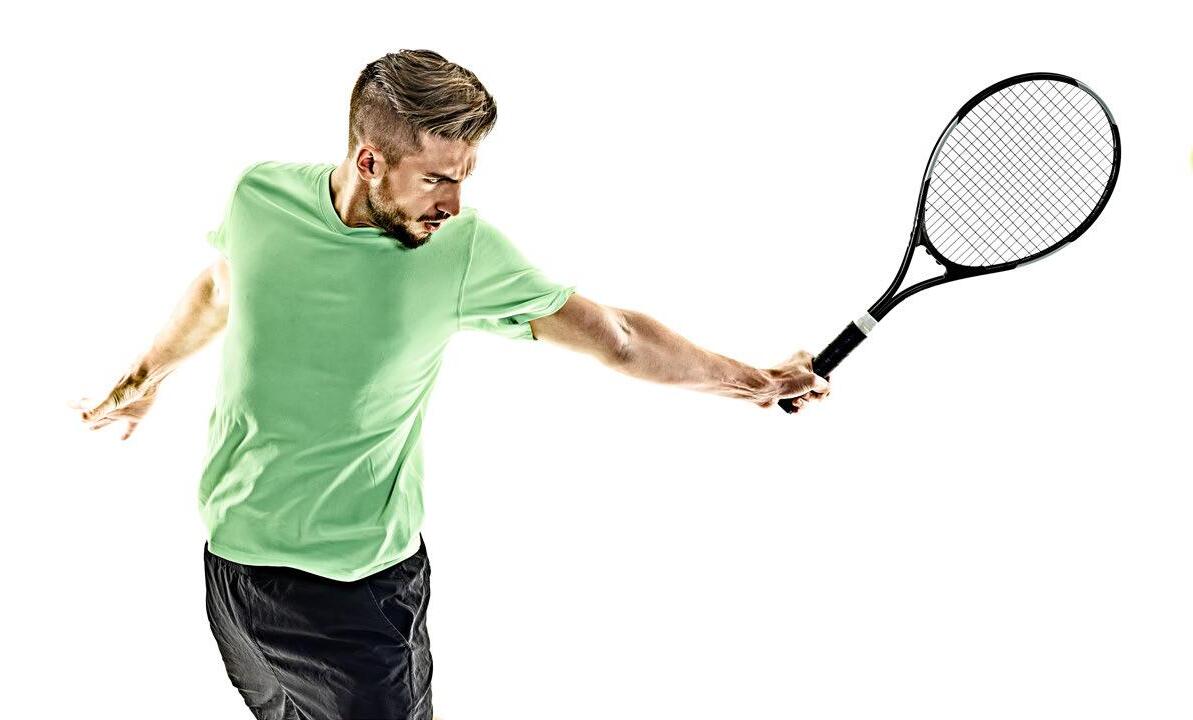
Former US Open champion Sloane Stephens, who has endured racist abuse for her whole career, said abuse of athletes was getting worse and had reach worrying levels. She claimed software designed to protect them from abuse has had little impact.
AFL AUSTRALIA 21
The AFL is investigating alleged racial abuse of Brisbane forward Charlie Cameron by a spectator during a match against Collingwood. A spokesman said the league's integrity unit, the Magpies and Lions were working together on an investigation.
SOCCER AUSTRALIA 22
An Adelaide amateur soccer club has been suspended from all competitions after one of its players allegedly attacked a referee during a match, sparking a police investigation.
SPORT INTEGRITY MATTERS | ISSUE 14 31
WWW.
SIA218-0823
SPORTINTEGRITY.GOV.AU









































 Images courtesy AusCycling
Images courtesy AusCycling







































